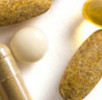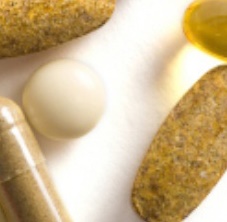Sport Supplementation- Let The Buyer Beware
Posted by Matt Russ on 5th Jun 2024
Although our bodies are very similar in many regards, when it comes to sport nutrition and supplementation what works best for one athlete may have another doing laps to the the race day port-o-let. It is interesting to observe competitors chomping on beef jerky and downing peanut butter sandwiches while others stick with simple liquid nutrition for the 10+ hour duration of an Ironman. Athletes will often swear by this product or that product as the secret or rationality behind their performance and recovery. For this reason alone I shy away from making very specific food or supplement recommendations. Instead I advise athletes to experiment with a variety of foods and products, within certain macro-nutritional parameters (protein/fat/carbohydrate), over a variety of conditions (temperature, hummidity), to determine what works best for them individually. Choosing the right product can be a slippery slope as sport nutrition is as highly individualized as the athletes themselves. There are myriad of products available athletes; and more coming on the market constantly, each claiming to have an edge over their competitors with just the "right" formula.
To name just a few things that may vary significantly from athlete to athlete…
- Metabolic rate and speed of gastric emptying
- Ratio of fat to glycogen usage: Some athletes are able to access and utilize a greater percentage of fat as a fuel source.
- Sweat rate / salt content of sweat
- Ability to thermo-regulate: Some athletes can not regulate body temperature as effectively as others
- Sensitivity of the gut: Some athletes have less tolerance for solid food while exercising.
- Food Allergies
- How well the body regulates blood sugar.
- Tastes / preferences: This is actually very important as a product that tastes bad will not get consumed as readily.
To make the selection process even more trying the multi-billion dollar supplement industry is an unregulated wild west of products. I recently watched an expose on an enormously popular “immune boosting” supplement that claimed to cure the common cold. The address of the so called institute at which the scientific “research” was conducted turned out to be that of a little old lady with no knowledge of the product. The “researcher” conducting the “studies” had no college degree.
How do supplement companies get away with such blatant misrepresentation? The FDA does not regulate dietary supplements as they do drugs; even though dietary supplements may contain hormones or “active ingredients” which have no long term studies as to their ill effects or proper dosage. This means the product you think you are buying could have 100x the active ingredient purported, or none of it at all. The FDA leaves it to the supplement industry to self regulate itself and is only responsible for taking action (which it rarely does) against an unsafe product, making blatant health benefit claims, after it goes to market. And they only pursue a small number of the most egregious cases. You may be playing Russian roulette with your performance and perhaps your health with many products. For instance; a manufacturer may buy an herbal or plant ingredient for their product, but they do not have to test it in order to determine if the ingredient they received is in fact what they purchased, or if it contains any of the active ingredient (which may actually have no value anyways). Virtually anyone can produce a product in their garage, slap a label on it with a series of unsubstantiated claims, and begin making money. I have actually known some individuals to do this very thing.
There are some things you can do as a consumer to product yourself and aid in choosing legitimate products that will work best for you individually. While I was taking a course at the Olympic Training Center it was pointed out that USADA (United States Anti Doping Agency) recommends that Olympic athletes take NO supplements to avoid testing positive for drug use. This may seem a bit extreme but a protein supplement that is made in the same room with a “testosterone booster” may very well become contaminated enough to cause a positive result, and end the career of an Olympic hopeful. When looking at it from this angle it makes sense to not risk a lifetime of training.
If you decide to take a supplement realize that there are in fact very, very few known and proven performance enhancing supplements. Most are of little or no value. I have a checklist of sorts, and If any of the following apply you should probably avoid the product…
- Are you considering it because it is endorsed by an athlete? Athletes get paid for endorsements. Although they may like and use the product it is just as likely they are endorsing it for the money they receive.
- Do they use testimonials to promote the product? Testimonials offer no objective evidence of the products worth. There may be many more people out there that found the product worthless, they may be paid, or the person giving the testimonial may not even exist. The placebo effect is a very powerful influence. If a person wants to believe a product works it usually will. This does not mean it is actually aiding performance.
- Does the product claim to cure or remedy multiple ailments or is it a panacea of health: “Run faster, recovery quicker, sleep better, and have more sex.” If it does run in the other direction.
- Is the product based on real research? Real research is conducted at institutions that utilize scientifically objective methods such as double blind studies; and even these can be flawed. Research is not conducted in the same “lab” that the product is made in. There is no objectivity from a “scientist” that promotes their own products that they are profiting from. Of course they are going to tell you it has scientifically proven value!
- “Increases running endurance by 30%” If it sounds too good to be true it probably is and if it really worked that well everyone would be buying it.
There are without a doubt some good products out there but by using these standards you will weed out the majority of the dubious ones. The next step is to find the products that work best for you individually. I recommend starting with products from larger companies. Although these products are not without risk at least a company such as Gatorade has a lot more to loose than Joe's magic sports drink. Look for companies that emphasize quality ingredients vs. performance enhancement.
Consider supplementation for your macro nutrient intake (carbohydrate, protein, fat) but avoid the performance boosters. Supplementation should be mainly done for convenience sake. Don't be afraid of “real” food. A banana is just as good or better source of energy when compared to most energy bars (not to mention cheaper). Chocolate milk is a great recovery drink. If you prefer the convenience of supplementation for your training and racing try a variety of products and read the labels. Carbohydrate for instance can come from a variety of sources; simple sugars or more complex sources such as brown rice syrup or maltodextrin. Be careful how multiple products may react to each other. Combining energy gels with a sports drink raises the carbohydrate concentration to a level that his not readily digestible and may cause gastric distress. Salt tabs and electrolyte tabs may or may not be needed and it is difficult to determine individual intake requirements. The more products you combine together the more likely you are to develop a problem.
Finally take care and be responsible for with what you put in your body. Real performance comes from a sound nutrition plan that allows quality training and recovery; not from the claims on a bottle or can. Once you find the right mix of foods and/or supplements stick to the plan. Don't change anything the week of a race and certainly not during one!



